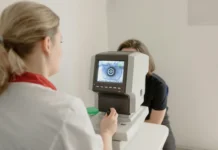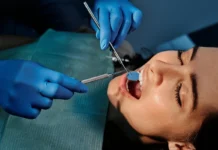In an increasingly fast-moving world, where responsibilities often outweigh self-prioritization, taking control of one’s health and beauty is becoming a powerful form of self-leadership. More than just a commitment to looking good, it reflects a deeper alignment with inner values, resilience, and intentional living. Supporting your well-being through both physical health and aesthetic care can enhance not just your self-image, but your overall ability to lead yourself and others with confidence and clarity.
The Connection Between Self-Leadership and Wellness
Self-leadership begins with the choices we make daily. It’s about steering your life toward outcomes that align with your values and aspirations. Health and beauty often serve as both mirrors and motivators in this journey. When you invest in wellness through healthy eating, exercise, rest, mindfulness, or skincare, you’re making a conscious decision to care for yourself. These acts send a strong internal message: “I’m worth the effort.” That mindset lays a strong foundation for all other areas of life, from career performance to personal relationships.
Prioritizing these practices doesn’t mean perfection or vanity. It means self-respect. When you lead yourself well, you inspire others to do the same, reinforcing a cycle of positive, empowered living.
Beauty Rituals as Acts of Empowerment
Beauty isn’t about meeting societal standards. It’s about highlighting what makes you feel radiant and aligned. Engaging in aesthetic routines, whether it’s skincare, professional treatments, or simply putting on your favorite lipstick, can act as grounding rituals that reinforce your self-worth. These moments give you space to reconnect with yourself, check in with how you’re feeling, and set intentions for the day.
From a self-leadership perspective, beauty rituals are not superficial. They are daily opportunities to take deliberate action for yourself. Small, consistent choices, like wearing sunscreen or treating yourself to a facial, reinforce the idea that you’re in charge of your own care and outcomes.
Strengthening Mind-Body Harmony
Supporting both health and beauty enhances the harmony between your physical and mental states. It’s hard to lead with clarity when you’re running on empty or disconnected from your body. Choosing to nourish yourself, move regularly, and seek treatments that rejuvenate your appearance all contribute to a clearer mind and balanced emotions.
Self-leadership requires awareness. When your body feels good and your appearance reflects your energy and effort, you naturally exude assurance. That kind of presence is magnetic, whether you’re navigating a boardroom or simply showing up for your friends and family.
Investing in Yourself with Purpose
The act of investing in yourself goes beyond finances; it’s about intention. Booking a professional skin treatment, joining a fitness class, or trying a new wellness technique are ways to say, “I matter enough to grow and evolve.” These actions build discipline and consistency, key components of self-leadership.
For those looking to take this further, aesthetic centers like dermani MEDSPA offer options that support both inner confidence and outward appearance. With services tailored to skin health, anti-aging, and rejuvenation, they help clients make empowered decisions about their self-care journeys. Whether you’re looking to enhance your natural features or support long-term wellness, a guided experience can reinforce your leadership over personal well-being.
Redefining Leadership from the Inside Out
Leadership is no longer just about managing others. It’s about mastering yourself. This includes acknowledging the relationship between physical appearance, emotional resilience, and mental sharpness. The more we learn to support ourselves holistically, the more effective we become in all areas of life.
Supporting your health and beauty is not a luxury. It’s an act of courage, consistency, and care, each quality vital to self-leadership. In leading yourself with intention, you become more capable of guiding others, not by command, but by example.
Ultimately, when we view self-care as self-leadership, we reclaim our time, our energy, and our direction, and we do it with grace.
Last Updated on 3 months by George Morgan































